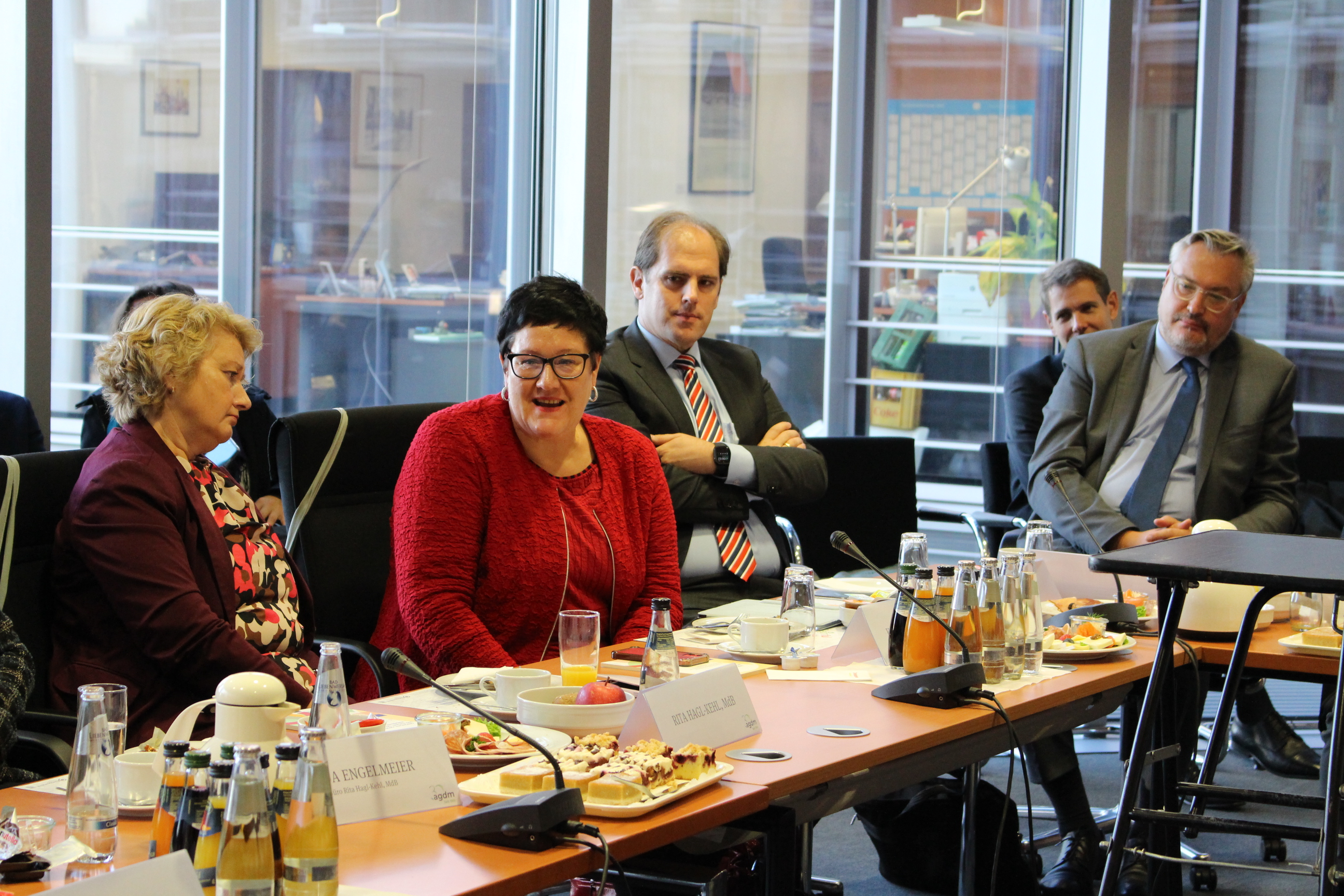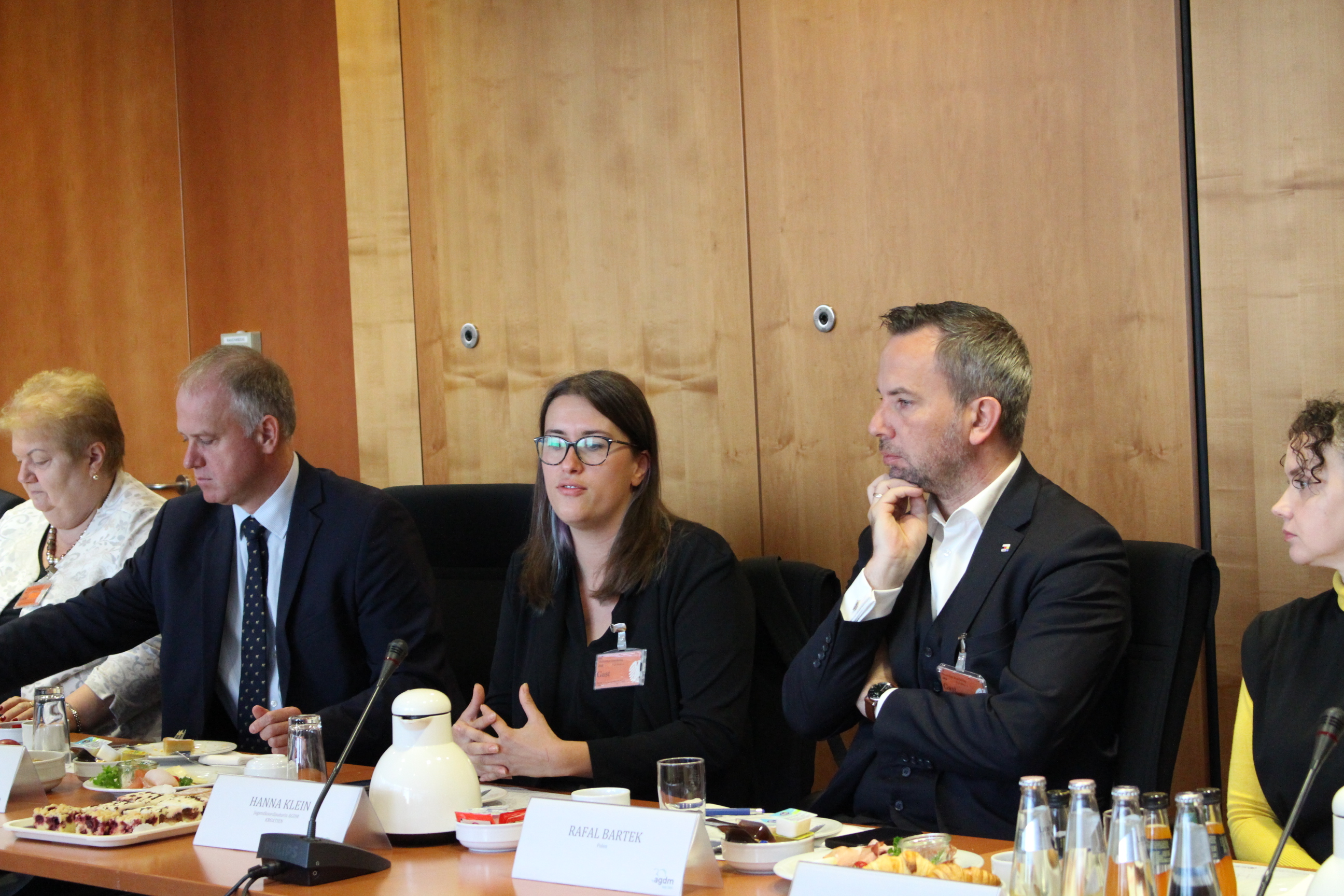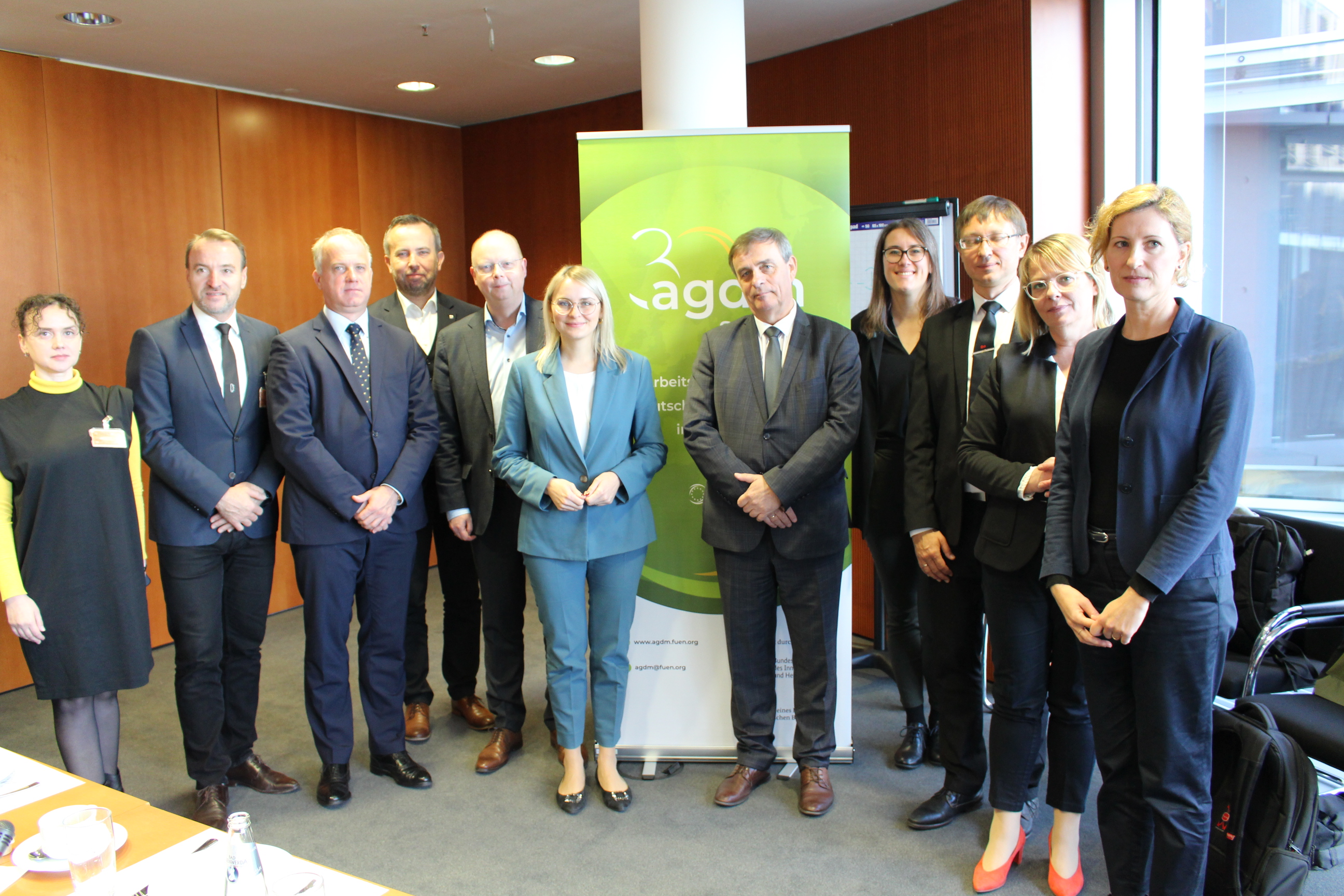German minorities abroad: Successful parliamentary breakfast in the Bundestag
18.10.2023The Working Group of German Minorities (AGDM) in FUEN and the Member of Parliament of the Southern Schleswig Voters' Association (SSW), Stefan Seidler, invited to a parliamentary breakfast in the Paul-Löbe-Haus of the German Bundestag on Wednesday, 18 October 2023. The aim was to familiarise the members of various parliamentary groups in the German Bundestag with the detailed work of the German minorities abroad and to win their support in order to counteract the cuts in funding announced in the government's draft federal budget for the coming year.
The AGDM representatives emphasised the immense importance of the German minorities abroad as a valuable treasure for the Federal Republic, as their work preserves the German language, culture and tradition, while at the same time reducing prejudices and reappraising history.

AGDM spokesman Bernard Gaida explained: "We are active members of our societies who are committed to German culture and identity as well as to regional ties. As loyal citizens of our countries, we contribute to diversity by sharing our lives with the majority in all areas of life – be it political, cultural, societal or social. In everyday life, we always make use of our contacts with Germany and today we would like to present an additional perspective: The German minorities abroad can be seen as mediators of Germany, a role that we, de facto, already hold."
Representatives of the German minorities from Hungary, Romania, Croatia, Poland, the Czech Republic, Ukraine and Lithuania were present, which gave the MPs the opportunity to learn about the interests and activities of the minorities and to enter into a direct and personal dialogue with them.

High-ranking MPs from various parties were represented at this influential meeting, including Stefan Seidler (SSW), Natalie Pawlik (Federal Commissioner for Aussiedler Issues and National Minorities, SPD), Stephan Mayer (CSU), Christoph de Vries (CDU), Knut Abraham (CDU), Rita Hagl-Kehl (SPD), Katrin Michel (SPD), Christian Petry (SPD) and Dietmar Nietan (SPD). In addition, Ina Latendorf from the party "Die Linke" was represented by one of her staff members. Her participation underlined the broad cross-party interest in the concerns of the German minorities abroad and made it clear that the promotion of these minorities is a common priority in German politics.
Particular attention was paid to the creation of funding opportunities to strengthen the identity of the German minorities through language promotion. These minorities are not only of national but also of high European importance, and they should be treated accordingly in German policy. In addition, it was emphasised that the EU should also play a decisive role when it comes to how member states deal with their minorities. This is what the Minority SafePack Initiative, a citizens' initiative of FUEN, which has already received strong support from several German states, is about, as Éva Adél Pénzes, Secretary General of FUEN, pointed out.

After the highly successful discussions during the parliamentary breakfast in the German Bundestag, there was already good news to report from the Budget Committee on the same day. According to an announcement by Natalie Pawlik, the Federal Government Commissioner for Aussiedler Issues and National Minorities, it was decided to forego the planned cut in funding for German minorities in the 2024 draft budget. This means that the German minorities will probably have a similar amount of funding from the BMI budget in 2024 as in 2023. This welcome news opens up the possibility for us to continue our minority work in these turbulent times and to continue to stand up for European values with great commitment.
Our sincere thanks go to all the members of the German Bundestag who have listened to our concerns and actively worked for their implementation. This positive development illustrates the effectiveness of such parliamentary discussions and the importance of continuing the dialogue.
COMMUNIQUÉ DE PRESSE
- FUEN wishes you a peaceful Christmas season, restful days and a bright, hopeful start to the new year!
- FUEN calls on the EU to act over systematic ethnic-based land confiscations in Slovakia
- Women of Minorities conference in Budapest calls for structural change to ensure equal political participation of minority women
- FUEN President Olivia Schubert at UN Forum on Minority Issues in Geneva
- "Laboratory of Peace": 28th Seminar of Slavic Minorities held in European Capital of Culture Gorica/Gorizia
- Equality in Political Participation and Representation: Third “Women of Minorities” Conference to Be Held in Budapest
- FUEN Working Group on Education discusses challenges and future of minority schooling in Europe
- 28th Seminar of Slavic Minorities in Europe to take place in Gorica/Gorizia, Italy
- Olivia Schubert in her first interview as FUEN President
- FUEN Assembly of Delegates elects new leadership – Olivia Schubert becomes new President














